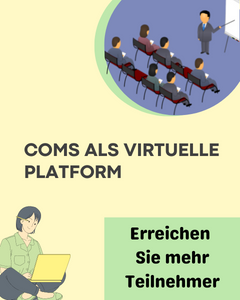Startseite / Konferenzkalender / Informatik / Benutzerschnittstellen, User Experience, Virtuelle Realität / Deutschland
Konferenzen > Informatik > Benutzerschnittstellen, User Experience, Virtuelle Realität > Deutschland
Wählen Sie ein Land aus
Deutschland
1
Dagstuhl-Seminar — Contextualising Complexity – Faithful Visualisations for Biology
01. Mär 2026 - 06. Mär 2026 • Schloss Dagstuhl, Deutschland
Eintrags-ID:
1671266
Webseite:
2
Dagstuhl-Seminar — Driver State Modelling: Cognitive and Computational Challenges
22. Mär 2026 - 27. Mär 2026 • Schloss Dagstuhl, Deutschland
Eintrags-ID:
1671358
Webseite:
3
Dagstuhl-Seminar — Exertion and Fatigue in Body-Based Interactive Systems
19. Apr 2026 - 22. Apr 2026 • Schloss Dagstuhl, Deutschland
Eintrags-ID:
1671459
Webseite:
4
WFCS 2026 — 22nd IEEE International Conference on Factory Communication Systems
21. Apr 2026 - 24. Apr 2026 • Offenburg, Deutschland
Eintrags-ID:
1685342
5
Dagstuhl-Seminar — Rethinking Research Methods in HCI: New Perspectives for and with AI Tools
26. Apr 2026 - 30. Apr 2026 • Schloss Dagstuhl, Deutschland
Eintrags-ID:
1671478
Webseite:
6
Dagstuhl-Seminar — From Speech Translation to Multilingual Communication – New Research Challenges
14. Jun 2026 - 17. Jun 2026 • Schloss Dagstuhl, Deutschland
Eintrags-ID:
1671543
Webseite:
7
Dagstuhl-Seminar — Harms in Digital Games: Sociotechnical Solutions for Prevention
21. Jun 2026 - 26. Jun 2026 • Schloss Dagstuhl, Deutschland
Eintrags-ID:
1671542
Webseite:
8
Dagstuhl-Seminar — Multimodal Data Quality – Human, Computational, and Institutional Perspectives
05. Jul 2026 - 10. Jul 2026 • Schloss Dagstuhl, Deutschland
Eintrags-ID:
1671615
Webseite:
Conference-Service.com stellt der Öffentlichkeit ein Kalendarium wichtiger Konferenzen, Symposien und sonstiger Tagungen im wissenschaftlich-technischen Bereich zur Verfügung. Obwohl das Verzeichnis mit großer Sorgfalt zusammengestellt und ständig aktualisiert wird, weisen wir auf die Möglichkeit von Fehlern ausdrücklich hin. Bitte vergewissern Sie sich immer beim Veranstalter, bevor Sie über die Teilnahme oder Nichtteilnahme an einer Konferenz entscheiden.
Stand vom 26. November 2025



